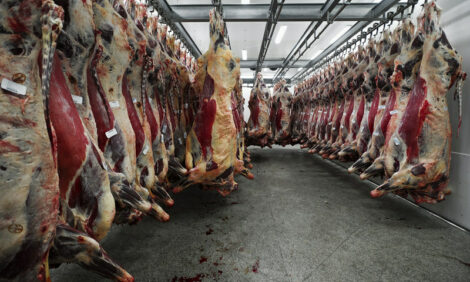



Opposing Cap And Trade Legislation
US - Delegates at the 91st American Farm Bureau Federation (AFBF) annual meeting voted to oppose cap-and-trade climate legislation and to support balancing the federal budget over the next eight years.The delegates approved a special resolution stating that cap-and-trade legislation would raise farmers’ and ranchers’ production costs, and the potential benefits of agricultural offsets are far outweighed by the costs to producers. Due to these and other concerns, the delegates strongly opposed “cap and trade proposals before Congress” and supported “any legislative action that would suspend EPA’s authority to regulate greenhouse gases under the Clean Air Act.”
“As Congress returns to the issue of cap-and-trade this year, the message of Farm Bureau will continue to be: ‘Don’t Cap Our Future’ agricultural productivity and food security,” said AFBF President Bob Stallman. “We will now send that message even more strongly.”
“Congress should focus on renewable energy that is better for the environment and our domestic energy security,” he added, “but it should not tie the hands of US producers, whose productivity, historically, has provided the world’s food safety net. We should not shrink US agriculture at the very time when many are concerned about how to feed a growing global population.”
The delegates said the federal deficit should be reduced each year, reaching a fully balanced budget by 2019. They said that federal spending on government services and entitlements must be reduced.
The delegates also called for meaningful relief from the estate tax, with no conditions or qualifications. They said that an increase in the overall exemption would be Farm Bureau’s main priority. They also reaffirmed their support for full stepped-up basis at the time of death in order to reduce the capital gains tax burden on farm and ranch heirs. Also on taxes, the delegates opposed the imposition of any health-related taxes on foods or beverages.
The delegates approved policy supporting changes to the Federal Milk Marketing Order structure, formulas and price classes used to compute milk prices, in order for those prices to reflect current market conditions, enhance transparency and account for regional differences in the cost of milk production. However, they rejected dairy supply management as a means to bolster dairy product prices, saying that Farm Bureau remains supportive of a market-oriented dairy programme.
On farm policy, the delegates affirmed their support for the current farm programme and continued their support for a mandatory country-of-origin labelling programme, as enacted in the 2008 farm bill. They also called for a workable ad hoc disaster programme and approved a new policy calling for a specialty crops title in future farm bills, along with additional research programmes and promotion of US specialty crops.
TheCattleSite News Desk


